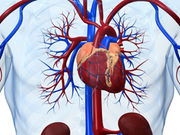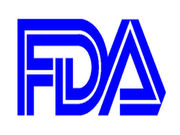ACC: Good Outcomes for Endovascular Procedures for CLI
Increase in endovascular procedures linked to decrease in in-hospital death, major amputation
ACC: Faster Absorption of Crushed Prasugrel in STEMI
Crushed prasugrel led to reduction in P2Y12 reaction units for up to four hours post-loading dose
Endogenous Endophthalmitis ID’d After Breast Implant Surgery
Case report describes endophthalmitis with chorioretinal involvement caused by Candida albicans
Costs Estimated for Applying to Dermatology Residency
Total cost was $11,324 and $9,058/applicant for matched and non-matched applicants
Wrestling Wins for Most High School Athletic Skin Infections
Overall rate of skin infections is 2.27 per 100,000 athlete exposures; mostly bacterial and tinea
FDA Approves Anthim for Treating Inhalation Anthrax
Anthim, combined with certain antibacterial drugs, designed to neutralize anthrax toxins
FDA: Most Powdered Medical Gloves Should Be Banned in U.S.
Side effects include airway and wound inflammation, agency says
AANA: Men Should Avoid Erectile Dysfunction Meds Prior to Surgery
Anesthesia professionals need to ask patients about these medications
Risk of Parkinson’s Disease Increased for Rosacea Patients
Research found an association, but no cause-and-effect relationship between the two conditions
Sharps Injuries for 76 Percent of Dermatology Residents
Most respondents received formal sharps safety education; 70% had no hands-on safety training














